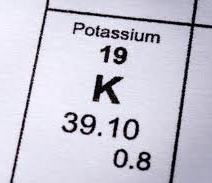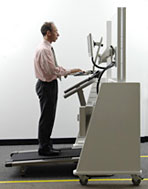December 1st, 2011 by ErikDavis in Opinion, Research
No Comments »
 I have skeptical confession to make. I was once a panacea-seeking antioxidant-taker. As background, I’m a marathon runner and occasional triathlete. Several years ago, I was training for an Ironman triathlon, and banking 20+ hours of intense exercise per week. That may sound absurd to many (it does to me, now that I have kids) but that kind of training is necessary for the long races. So what did this pharmacist-wannabe-triathlete with access to discount vitamins do? He stocked up on the fancy bottles of multivitamins, the “endurance” version, of course — with extra antioxidants. Why did I supplement? I wanted to maximize my workouts, speed recovery, and minimize downtime and the risk of injury. Oxidation sounds bad — like a rusting car. Anti-oxidants sounded like the ultimate in preventative medicine. My workouts may have been more extreme, but the practice of supplementing if you exercise is common among athletes.
I have skeptical confession to make. I was once a panacea-seeking antioxidant-taker. As background, I’m a marathon runner and occasional triathlete. Several years ago, I was training for an Ironman triathlon, and banking 20+ hours of intense exercise per week. That may sound absurd to many (it does to me, now that I have kids) but that kind of training is necessary for the long races. So what did this pharmacist-wannabe-triathlete with access to discount vitamins do? He stocked up on the fancy bottles of multivitamins, the “endurance” version, of course — with extra antioxidants. Why did I supplement? I wanted to maximize my workouts, speed recovery, and minimize downtime and the risk of injury. Oxidation sounds bad — like a rusting car. Anti-oxidants sounded like the ultimate in preventative medicine. My workouts may have been more extreme, but the practice of supplementing if you exercise is common among athletes.
As it turns out, not only were the antioxidants likely ineffective, they may have compromised some of the gains I was seeking with all that training. That I didn’t evaluate the evidence at the time was my critical-thinking blind spot. Over the the past several years, more data on antioxidants and exercise have emerged. A recent review article, Read more »
*This blog post was originally published at Skeptic North*
March 4th, 2011 by Toni Brayer, M.D. in Health Tips, Research
No Comments »

 There are few medical conditions that people fear more than a stroke. We know that blood pressure control and lowering cholesterol levels reduces stroke risk. Now, thanks to a huge analysis from Italy published in the Journal of the American College of Cardiology, we know that higher dietary consumption of potassium is associated with lower rates of stroke and could also reduce the risk of coronary heart disease and total cardiovascular disease, too. What is even more remarkable is that the results apply to all parts of society and not just to specific “at-risk” subgroups.
There are few medical conditions that people fear more than a stroke. We know that blood pressure control and lowering cholesterol levels reduces stroke risk. Now, thanks to a huge analysis from Italy published in the Journal of the American College of Cardiology, we know that higher dietary consumption of potassium is associated with lower rates of stroke and could also reduce the risk of coronary heart disease and total cardiovascular disease, too. What is even more remarkable is that the results apply to all parts of society and not just to specific “at-risk” subgroups.
Most doctors aren’t even aware of how important it is to eat potassium-rich foods. And what are these foods that have potassium? Surprise: It’s fruits and vegetables like bananas, tomatoes, oranges, apricots, most legumes, spinach, winter squash, avocado, kiwi, and cantaloupe. Actually, almost all fruits and veggies have moderate to high potassium content.
The researchers looked a number of well-done studies that included 247, 510 participants over age 30 and found that those patients with the higher potassium intake reduced their stroke risk by 21 percent. The Italian doctors say the protective effect of potassium against stroke is in part due to its blood pressure lowering effects and also due to other properties of the potassium mineral, such as the inhibition of free radical formation.
I’ve written before about the DASH diet, which also found that reduction of sodium and addition of fruits and vegetables to the diet is an effective way to control blood pressure. The DASH diet is high in potassium.
Think about it: Did you have five servings of fruits and vegetables today? Numerous studies have shown their life-prolonging benefits. This new study just adds to what we already know. I challenge all readers to keep a diet count and make sure you are eating five fruit and vegetable servings a day — every day — to help reduce your risk of stroke, cancer, and heart attack.
*This blog post was originally published at EverythingHealth*
February 27th, 2011 by Glenn Laffel, M.D., Ph.D. in Better Health Network, Research
No Comments »

Most people know that the U.S. is struggling to contain a surging epidemic of obesity, and that the problem is most acute among African-Americans. Whereas about 27 percent of all adult Americans are obese (defined as having a body mass index of 30 or more), fully 37 percent of African-American adults are obese, and that number jumps to an appalling 42 percent among African-American women.
Over the years, public health officials have provided evidence that socioeconomic and cultural factors drive this racial disparity. Now, a new study suggests there is another reason as well: Obese African-Americans receive less obesity-related counseling than their white counterparts, and it matters not whether the physicians they see are African-American or white.
To reach these conclusions, Sara Bleich and colleagues from the Johns Hopkins School of Public Health used clinical encounter data from the 2005–2007 National Ambulatory Medical Care Surveys (NAMCS). The sample included 2,231 visits involving African-American and white obese people who were at least 20 years old and who visited family practitioners and internists that were either African-American or white. Asian and Hispanic patients and physicians were excluded from the study because their numbers were too small to permit hypothesis testing.
For each encounter in the study, the scientists determined whether the patient received guidance on weight reduction, diet and nutrition, or exercise from his or her physician. Read more »
*This blog post was originally published at Pizaazz*
January 11th, 2011 by Toni Brayer, M.D. in Better Health Network, Health Tips
No Comments »

 As part of the new healthcare legislation (Affordable Care Act), the FDA has now published its guidelines for restaurants to inform consumers of the calorie counts of food. It establishes requirements for nutrition labeling of standard menu items for chain restaurants and chain vending machine operators.
As part of the new healthcare legislation (Affordable Care Act), the FDA has now published its guidelines for restaurants to inform consumers of the calorie counts of food. It establishes requirements for nutrition labeling of standard menu items for chain restaurants and chain vending machine operators.
This is important because Americans now consume an estimated one-third of their total calories from foods prepared outside the home. Consumers are generally unaware of the number of calories they consume from these foods, and being overweight or obese increases the risk of a number of diseases including heart disease, type 2 diabetes, stroke, and cancer.
Here’s what the guidelines say:
— Restaurants with 20 or more locations must disclose the number of calories in each standard menu item on menus and menu boards (have 19 chain locations? You get a pass. Daily specials also get a pass.)
— Additional written nutrition information must be available to consumers upon request (total fat, saturated fat, cholesterol, sodium sugars, carbs, fiber, protein, etc.)
— The menu must say that the additional nutritional information is available. Read more »
*This blog post was originally published at EverythingHealth*
September 19th, 2010 by Maria Gifford in Better Health Network, Expert Interviews, Health Tips, Research
No Comments »
 Obesity doesn’t stand a chance against Dr. Jim Levine, one of the prestigious presenters at Mayo Clinic’s Transform 2010 conference last week. Dr. Levine’s fascinating research focuses on helping people understand obesity, weight reduction, and Non-Exercise Activity Thermogenesis (NEAT) — the idea that expending calories through the activities of daily living is more important for calorie burning than exercise is.
Obesity doesn’t stand a chance against Dr. Jim Levine, one of the prestigious presenters at Mayo Clinic’s Transform 2010 conference last week. Dr. Levine’s fascinating research focuses on helping people understand obesity, weight reduction, and Non-Exercise Activity Thermogenesis (NEAT) — the idea that expending calories through the activities of daily living is more important for calorie burning than exercise is.
Dr. Levine’s “Treadmill Desk” has won more than 50 national and international awards in science, including the Judson Daland prize from the American Philosophical Society, the Invention of the Future Award from NASA, and the Innovation Award at the World Fair. The “Walkstation” is now a product of Steelcase.
Dr. Levine’s work has been highlighted nationally around the world, and he has produced documentary films with the BBC, ABC, and CNN. His Walkstation has been featured in The New York Times, his vision of a future where office people walk at work in USA Today, and his Treadmill Desk tested live on Good Morning America. Read more »
 I have skeptical confession to make. I was once a panacea-seeking antioxidant-taker. As background, I’m a marathon runner and occasional triathlete. Several years ago, I was training for an Ironman triathlon, and banking 20+ hours of intense exercise per week. That may sound absurd to many (it does to me, now that I have kids) but that kind of training is necessary for the long races. So what did this pharmacist-wannabe-triathlete with access to discount vitamins do? He stocked up on the fancy bottles of multivitamins, the “endurance” version, of course — with extra antioxidants. Why did I supplement? I wanted to maximize my workouts, speed recovery, and minimize downtime and the risk of injury. Oxidation sounds bad — like a rusting car. Anti-oxidants sounded like the ultimate in preventative medicine. My workouts may have been more extreme, but the practice of supplementing if you exercise is common among athletes.
I have skeptical confession to make. I was once a panacea-seeking antioxidant-taker. As background, I’m a marathon runner and occasional triathlete. Several years ago, I was training for an Ironman triathlon, and banking 20+ hours of intense exercise per week. That may sound absurd to many (it does to me, now that I have kids) but that kind of training is necessary for the long races. So what did this pharmacist-wannabe-triathlete with access to discount vitamins do? He stocked up on the fancy bottles of multivitamins, the “endurance” version, of course — with extra antioxidants. Why did I supplement? I wanted to maximize my workouts, speed recovery, and minimize downtime and the risk of injury. Oxidation sounds bad — like a rusting car. Anti-oxidants sounded like the ultimate in preventative medicine. My workouts may have been more extreme, but the practice of supplementing if you exercise is common among athletes.




 As part of the new healthcare legislation (Affordable Care Act), the FDA has now published its
As part of the new healthcare legislation (Affordable Care Act), the FDA has now published its  Obesity doesn’t stand a chance against Dr. Jim Levine, one of the prestigious presenters at Mayo Clinic’s
Obesity doesn’t stand a chance against Dr. Jim Levine, one of the prestigious presenters at Mayo Clinic’s 







